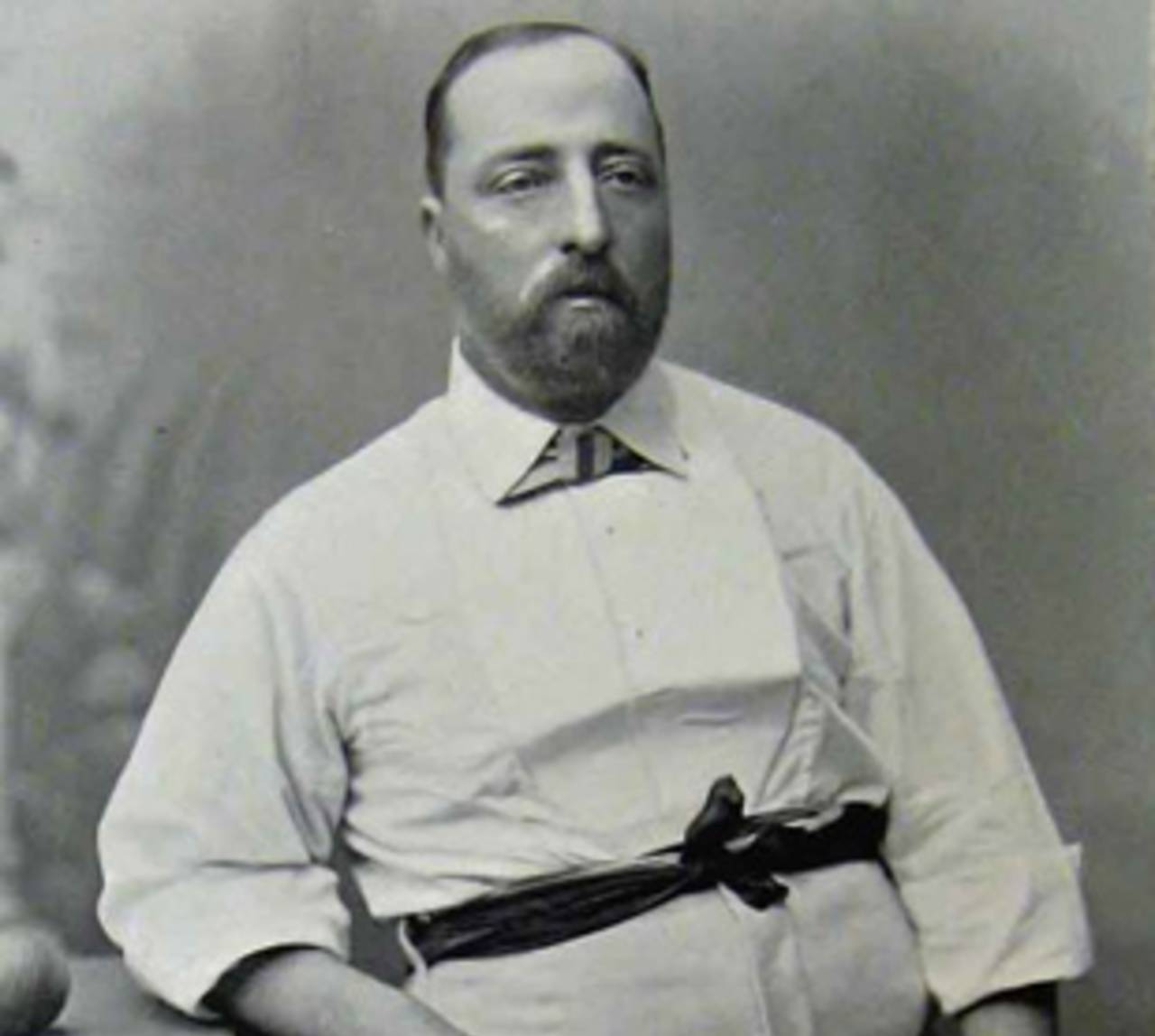Every so often players go on tour who struggle to fit in, either with their team-mates or the world in general. Occasionally they go too far and clash with the authorities. Few have been rewarded for a good spell of bowling by being marched straight off the field and to the cells. Such was the fate of the captain of the first Canadian touring side.
As the popularity of cricket spread globally in the second half of the 19th century, tours abroad by English sides became increasingly common as entrepreneurs realised it was a chance for them and professional cricketers to make serious money. Reciprocal visits to England offered an opportunity for players from developing countries to play against strong opposition and to hone their own game.
Some of these tours to England made money but an equal number struggled against the haughtiness of the Victorian establishment, allied to their own weaknesses and consequent inability to produce good matches. Most of them were nothing if not eventful.
In 1880 the first side from Canada arranged to tour England, buoyed by the success of Richard Daft's England XI that had visited North America the year before. But from the off there were problems.
The squad selected was hardly a representative of Canada as only eight of them played cricket in the country. Three others, including the captain, played in the USA.
The organisers' early optimism soon waned as fixtures proved hard to arrange and funding was a struggle from the start. Without any household names, they were simply a hard sell to county secretaries. That a strong Australian side, which also found matches difficult to agree, was also in the country added to the Canadians' problems. It was when they landed the real difficulties surfaced.
Unbeknown to the organisers, their captain was not quite what he seemed. They believed him to be Thomas Jordan but that was an alias. He was in fact
Tom Dale, who had been born in Yorkshire and who had deserted from the Royal Horse Guards seven years earlier while stationed in North America.
Dale's early organisation left much to be desired, and more importantly, his alias fooled few people. It was also reported that his wife, weary of his philandering, had informed the authorities of his identity, so they were prepared when he arrived. Ten days into the trip he was arrested by the local police as he left the field after taking 4 for 49 against Leicestershire. The home side allowed him to be replaced.
Dale was taken to a specially convened military court and sentenced to 35 days in prison. He escaped from the guard room while awaiting to be taken to jail, but was immediately recaptured, returned to court and given an additional 336 days incarceration for his pains. Needless to say, that was his tour over.
The captaincy was handed to the 47-year-old Thomas Phillips. Many accounts state he was summoned from Canada after Dale's arrest but he was actually playing in the match at Leicester. It is more likely he was sent for soon after the team arrived when it became clear Dale was not up to the job.
Phillips was the antithesis of Dale - a clergyman, teacher and good administrator - and had played for Canada against the first touring side from England in 1859. But he was not in the first flush of youth and he managed only 191 runs at 9.55 in the 13 matches he played.
The arrest threw the already wobbly arrangements into disarray and the next two matches - in Cardiff and Swansea - were cancelled as the tourists regrouped. From Leicester they headed to London for their biggest game, against MCC at Lord's.
Scheduled for two days, it was all over by late afternoon on day one as the Canadians, who were allowed 15 batsmen, were bowled out twice - for 33 and 36 - in a little over two hours to lose by an innings and 23 runs with Alfred Shaw taking 15 for 40. Such an early finish was a financial disaster for all concerned; such an abject performance sounded the death knell for the viability of the tour.
It was clear Dale had been their real on-field trump card and without him they were in trouble. After the Lord's humiliation, the Canadians bolstered their ranks by recruiting Walter Wright, a Nottinghamshire professional, who repaid the investment with 61 wickets in nine matches.
As word spread the tourists were not that good, the already small numbers prepared to pay to watch fell away further.
A letter in the Times three days after the MCC match pleaded with the public to "encourage the Canadians in their uphill and plucky enterprise", adding that "not one of their number had any idea that [Dale] was a deserter". But it was too late.
They limped on, the itinerary zigzagging the country as they accepted matches where they could get them. With the organisers losing money at an increasing rate and with no way of turning the tide with any high-profile matches, the tour was prematurely cancelled in mid-July and the out-of-pocket players returned home. Ironically they actually won their last two games, thanks largely to the 26 wickets taken by James Gillean.
What happened next?
- The Canadians next returned in 1887 with a stronger side and their visit was financially successful
- Dale returned to America after being released from prison and immediately divorced his wife. In 1893 he played his one first-class fixture, for the USA against Gentlemen of Philadelphia
- Phillips continued to play into his 60s and is recorded as making a hundred in club cricket aged 63
Is there an incident from the past you would like to know more about? Email us with your comments and suggestions.
Martin Williamson is executive editor of ESPNcricinfo and managing editor of ESPN Digital Media in Europe, the Middle East and Africa

